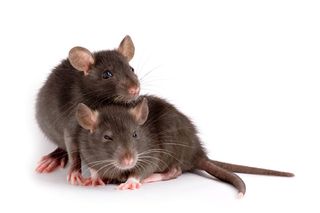Sisters Make Male Rats Less Sexy

Siblings really can screw up your love life – at least if you're a rat. A new study finds that male rats raised with lots of sisters are less appealing to unrelated female rats than male rats that come from balanced or male-dominated litters.
Many studies have shown that siblings and birth order affect later behavior in both humans and rats. Female rats sandwiched between two males in utero, for example, are more likely to display male-type sexual behaviors later in life because of exposure to male hormones before birth. Other studies have shown that the sex ratio of the litter itself affects adult behavior.
In humans, having sisters have been shown to curb depression in their siblings, and having older brothers may fuel aggression.
University of Texas at Austin psychobiologist David Crews wanted to separate the effects of life before and after birth. So he and his colleagues counted rat pups to determine the number of males and females in the womb. Next, they switched some of the pups at birth, reassembling litters so that some had an equal number of brothers and sisters while others skewed male or female.
As the rats grew up, the researchers found that the pre-birth sex ratio didn't influence behavior. But for male rats, the gender of siblings mattered. When males that had been raised with a lot of sisters were presented with receptive female rats, they spent less time mounting them than did male rats raised in male-biased or balanced litters. But they penetrated the female rats and ejaculated just as much as did the other males.
"The males are more efficient at mating," Crews said in a statement.
The efficiency may be a compensation for the fact that males raised with many sisters are less attractive to female rats. You can tell by watching the females, Crews said. If they want to mate, they'll do a move called a “dart-hop” and wiggle their ears.
Sign up for the Live Science daily newsletter now
Get the world’s most fascinating discoveries delivered straight to your inbox.
"It drives males nuts," Crews said.
Females acted out this provocative dance much less for males from female-biased litters than for males from other litters.
The results, reported in October in the journal Psychological Science, also have implications for humans, Crews said.
"It tells you that families are important," he said. The environment where you were raised, he said, "doesn't determine personality, but it helps to shape it."

